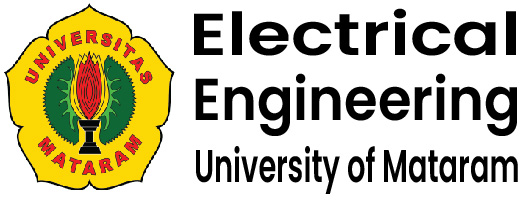LEARNING OUTCOMES OF GRADUATES
Educational Goals
Character Graduates. Graduates with a noble and civilized attitude, deed, and actions.
Quality Graduates.Graduates with national and international standard knowledge, skills, and competencies.
Global Competitive Graduates. Graduates can compete in the global and have a passion for lifelong learning.
Graduate Profiles
- Engineer
- Graduates are able to have a career in electrical engineering practice in analyzing, designing, developing, and operating system
- Researcher
- Graduates are able to continue their education to postgraduate level and/or have a career in R&D or as academics.
- Technopreneur
- Graduates are able to independently pioneer and develop types of business fields related to Electrical Engineering expertise, thereby contributing significantly to the expansion of employment opportunities
Program Learning Outcomes
- Religious and ethical. Able to demonstrate a religious attitude, apply ethical principles and be committed to professional responsibilities and ethics as well as engineering practice norms and care for the community and the environment.
- Knowledge. Able to apply knowledge of science and mathematics, electrical technology, information technology and/or materials technology to gain a thorough understanding of the principles in the field of electrical engineering.
- Engineering Analysis. Able to choose methods, make literature reviews, design experiments with simulations, and analyze results to reach the right conclusions, as well as develop guidelines for using tools.
- Engineering Design. Able to design and develop components, systems and/or processes to support engineering activities and create technological innovations by optimally utilizing potential resources.
- Experiment. Able to design and carry out experiments using basic and modern technical tools and analyze and interpret data based on the correct methodology to strengthen engineering assessments.
- Communication. Able to interact and express ideas effectively both orally and in writing within the engineering environment and the general public in the national and international scope.
- Individual and Teamwork Able to plan, implement, complete, and evaluate tasks both individually and in collaboration in interdisciplinary, multidisciplinary, multinational, and multicultural teams.
- Entrepreneurship Able to apply entrepreneurial principles and methods in starting a business independently and building technology-based business networks.
- Lifelong learning. Able to understand the need for lifelong learning with data literacy, technology literacy, information literacy and human literacy.
